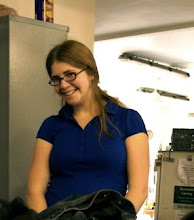I learned this this past week in my Rambam class with Rabbi Levi Cooper:
ואם אנסו להעבירו בעשרה מישראל - יהרג ואל יעבר -הלכת יסודי התורה, פ"ה, ה"ב
If he is forcing one to transgress in front of 10 people from Israel - he should be killed and not transgress (Hilchot Yesodei HaTorah 5:2)
The relevant part, in mine (and my teacher's) mind, is the fact that kiddush hashem is a public act. And not just a public act in front of whomever happens to be around, but in front of one's own community, in front of other Jews. Rambam specifically says "10 from Israel," not saying a minyan (in Rambam's mind, a quorom of 10 Jewish adult men) - an understanding of what is legally required for prayer. This isn't legal, it is not halacha (Jewish law). By making this a public act, in front of a person's community, Rambam is saying that what matters isn't God's presence or the individual's relationship with God, but rather the individual's relationship with their community. What is relevant is not what you do in your heart, but how you represent yourself to your community.
From an organizing perspective, this makes a lot of sense to me - we get public commitments from our targets, we strive to bring politics back to the public realm where they belong, rather than in the back room. We value transparency. An elected official can easily not follow through on something that he says privately to his friend, but this is much more difficult when that commitment is made in front of 2000 people and the media.
Another element is that this kiddush hashem is done specifically in front of your own community. When we do work to bring the world-as-it-should-be, but completely separate it from our communities, or are not public about it, it makes it a lot harder for others to join in that work.
To open this up for comments (which are ALWAYS welcome) - what are your thoughts on this? For what actions is this relevant for you? Does it only matter when we do things in public, or even more specifically, in front of our communities?




No comments:
Post a Comment